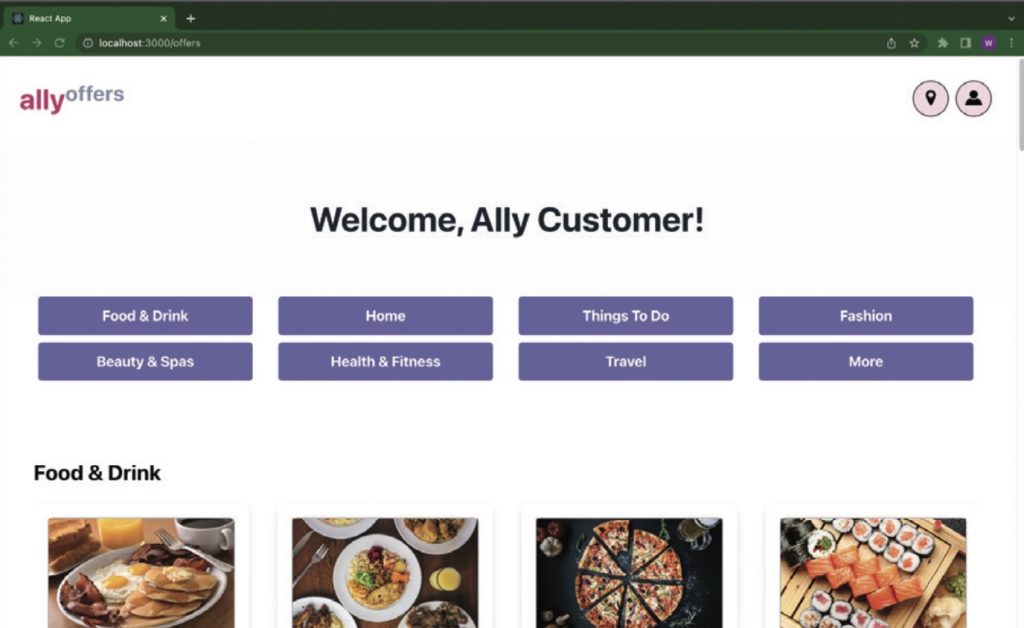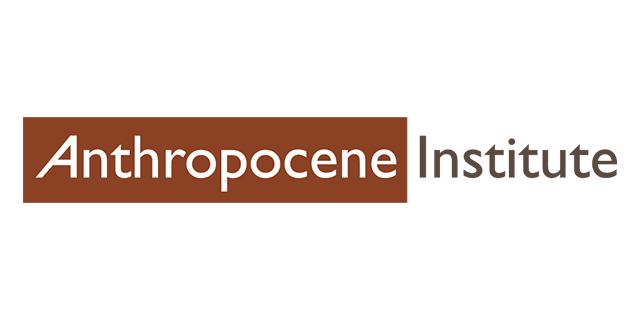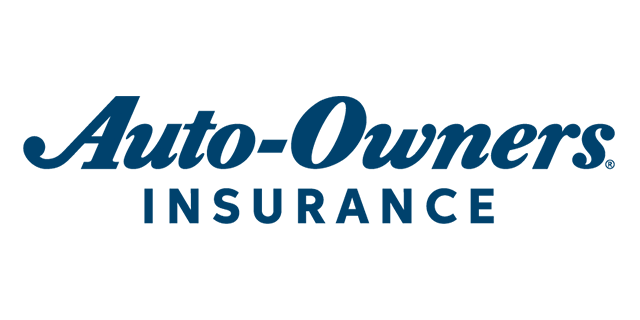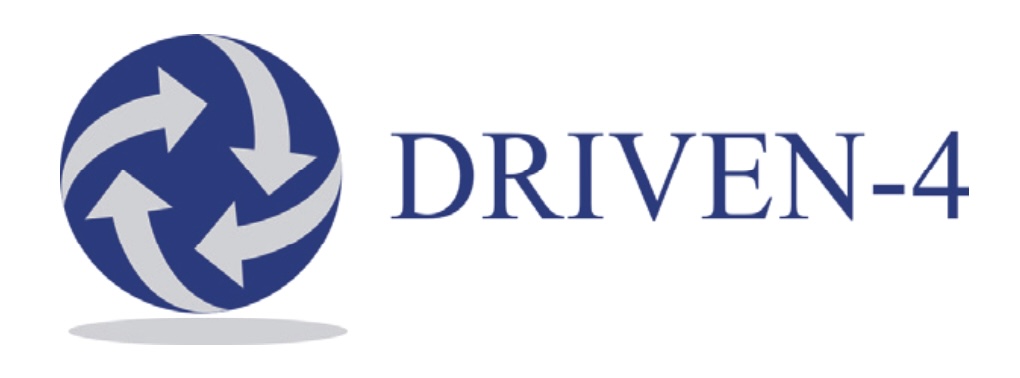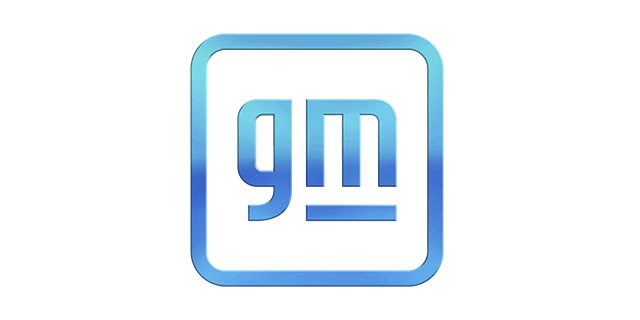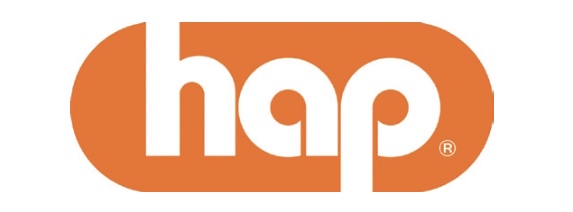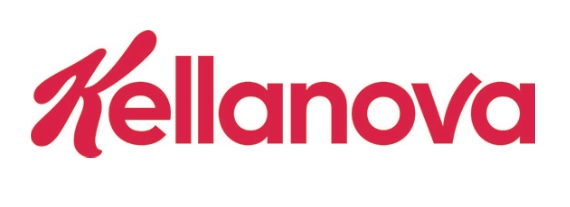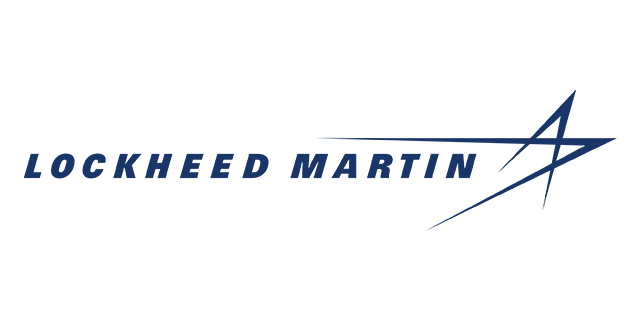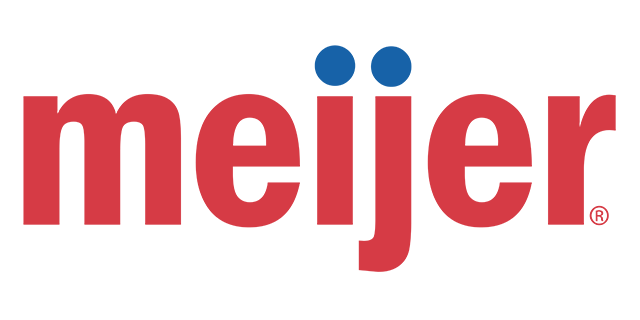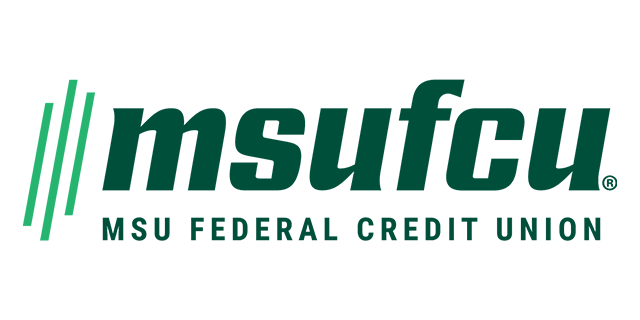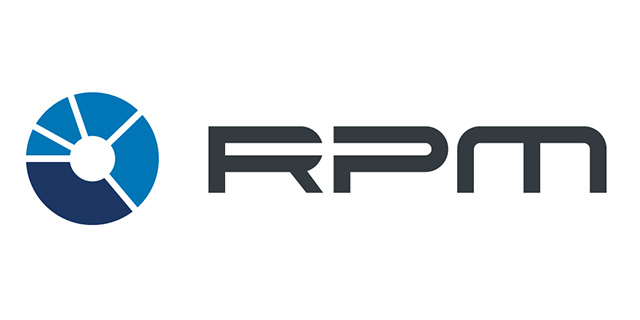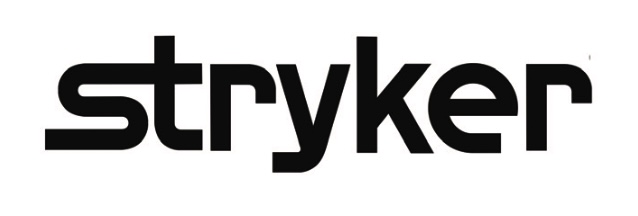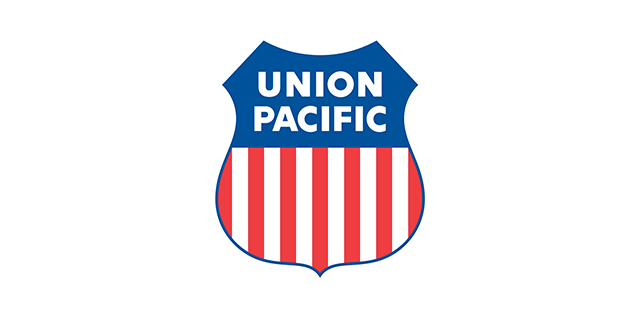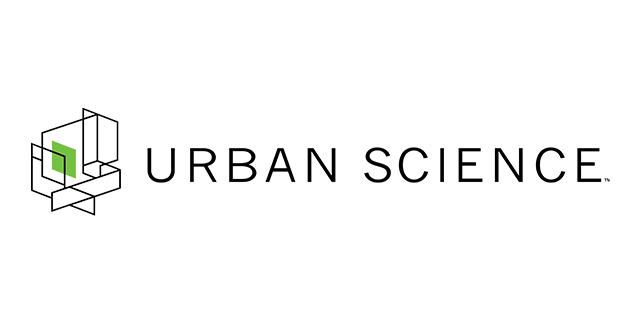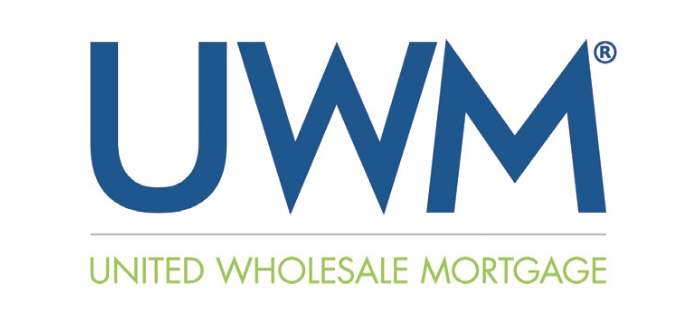Ally Financial: Money Moves: Ally Financial Education Platform
Amazon: Email Improvement Tool
Anthropocene Institute: Machine Learning for Optimization of Carbon Removal
Auto-Owners Insurance: Help Me See!
Bosch: Trailering Safety Tool Using Computer Vision
DRIVEN-4: DRIVEN-4 Connect Update and Upgrade
Evolutio: Evo Observability Platform
General Motors: Application Lifecycle Framework 2.0
HAP: Leveraging OpenAI for Business Analytics
Kellanova: Global Business Services Process Intelligence
Kohl’s: Infinity Gauntlet
Lockheed Martin Space: SmartSatTM Heterogenous Computing in Space
Magna International: Composable 3D Model for a Manufacturing Plant
Meijer: Enhanced Shopping Experience Using AI
Michigan State University: clUML: A Browser-Based UML Editor
Moii.AI: Small Object Detection Using CCTV Cameras
MSU Federal Credit Union: Digital Banking Car App
Roosevelt Innovations: Predictive Claims Scoring
Roosevelt Innovations: Universal Guided Web Editor
RPM: AI-Based Chat Service
Stryker: Electronic Data Interchange (EDI) Dashboard
TechSmith: ACE: Automated Content Editor
Union Pacific: Railroad Switch Alignment Training
United Airlines: Audit Automation Tool
Urban Science: Synthetic Media
UWM: Change Insights Datamart and Risk Assessment
Vectra AI: Malware Command and Control Channel Simulator
Volkswagen Group of America: Volkswagen Shopping App with Augmented Reality
Whirlpool Corporation: DeepOven: Volume and Quantity Estimation in Cooking
WK Kellogg Co: Global Business Services Process Intelligence
Ally Financial: Money Moves: Ally Financial Education Platform
eadquartered in Detroit, Michigan, Ally Financial is one of the top 25 financial holding companies in the United States and is a leader in digital financial services. Ally provides financial products for consumers, businesses, automotive dealers, and corporate clients in their commitment to continuously meet and exceed the needs of their clients by constantly changing and evolving the methods they use to help.
To achieve this goal, Ally looks to not only assist their clients in improving their finances, but also to improve their financial knowledge. Assisting customers and businesses with their financial situations can be complicated, as occasionally a customer is not well versed on a particular aspect of finance.
Our Money Moves application teaches customers about the various financial topics and services Ally provides, which ensures that they feel more confident with their finances afterward. This, in turn, saves money for the customer and improves Ally’s image.
Money Moves supports profile creation tailored to a customer’s interests and experiences, which our software uses to recommend various courses. Users select a course and are taken through content consisting of text, images, and videos. Each medium educates the customer on a current topic. Upon completion, users are quizzed and rewarded with coins based on their performance. With these coins, users can progress through levels. As users level up, they are recommended more difficult courses and unlock specialized financial tools such as interest and loan calculators.
Our software educates customers on many financial topics, saving them money and improving Ally’s brand image.
Our application is written in HTML, CSS, and JavaScript, and utilizes the React framework. The application interacts with Express, Docker, and MySQL to gather and store user data, and utilizes Amazon Web Services for infrastructure.
Michigan State University
Team Members (left to right)
Timothy Moran
Oak Forest, Illinois
Blake Morris
Farmington Hills, Michigan
Bohan Zhang
Taiyuan, Shanxi, China
Odon Mulambo
Lusaka, Lusaka, Zambia
Jack Patton
Naperville, Illinois
Ally
Project Sponsors
Jared Allmond
Detroit, Michigan
Wan Kim
Detroit, Michigan
Dan Lemont
Detroit, Michigan
Harish Naik
Phoenix, Arizona
Susan Nord
Detroit, Michigan
Arvy Rajasekaran
Charlotte, North Carolina
Kevin Werner
Charlotte, North Carolina
Amazon: Email Improvement Tool
Amazon, founded by Jeff Bezos in 1994, is the world’s largest online retailer, operating in over 50 countries around the world. The multinational technology company focuses on e-commerce, cloud computing and digital streaming. Amazon insists on the highest standards and focuses on earning their customers’ trust. As a part of maintaining these qualities, Amazon oversees thousands of emails that are sent daily to sellers worldwide. This task can be time consuming and complex when managing thousands of Amazon teams and millions of lines of code.
Our Email Improvement Tool is a web application that utilizes machine learning to analyze and provide feedback on uploaded emails. The analysis page of our application, shown on the right, enables Amazon content creators to view generated feedback in an easy and efficient manner. Topics of analysis include empathy, clarity, categorization, summarization and duplicate detection.
Organized by topic, each tab provides a quick preview of the feedback with a detailed description available under each dropdown. These descriptions consist of suggestions, confidence scores and ratings based off the analysis to be viewed by the user.
The duplicate detection feature provides a faster way for content creators to find similar previously written emails during the writing process. The summarization feature creates a quick overview of email content to make analyzing emails easier than ever.
Our system assists users in writing effective and clear emails, improving communication and efficiency at Amazon.
Our web infrastructure is built with a React framework and Amazon Web Services to create a responsive and scalable environment. We also use AWS Amplify, API Gateway, Lambda, DynamoDB and Simple Storage Service to minimize unnecessary overhead. Amazon SageMaker and Amazon Comprehend are used to provide the machine learning solutions.
Michigan State University
Team Members (left to right)
Annika Karlstrom
Clarkston, Michigan
Michael Than
Grand Rapids, Michigan
Jack Sleeman
Pinckney, Michigan
Nafisa Farah Ahmed
Sterling Heights, Michigan
Will Gamba Jr
Westfield, New Jersey
Byzjon Speights
Flint, Michigan
Amazon
Project Sponsors
Zach Arnold
Detroit, Michigan
Garret Gaw
Detroit, Michigan
Derek Gebhard
Detroit, Michigan
Detroit Leadership
Detroit, Michigan
DJ Martin
Detroit, Michigan
Rashmi Priya
Detroit, Michigan
Anthropocene Institute: Machine Learning for Optimization of Carbon Removal
The Anthropocene Institute is an organization founded by Carl Page in 2012 and is focused on making the Earth sustainable by knowing and investing in the right technology. They partner with entrepreneurs, investors, governments, nonprofits, and universities to foster science, influence policy, promote clean, sustainable energy, and more.
As climate change has become a more serious issue over time, it has become increasingly beneficial for companies and organizations to invest in lowering their carbon footprint. For example, one fourth of Fortune 500 companies have pledged to be carbon neutral by 2030. Investing in carbon removal technology is hard enough for the world’s biggest companies, but smaller organizations often don’t have the time or resources to effectively do so.
Our Machine Learning for Optimization of Carbon Removal tool is a website used by government agencies, private companies, entrepreneurs, investors, and the public to become informed and to help them make investment decisions.
Our website displays fully interactive and responsive heatmaps for three major carbon capture technologies on their own web pages: kelp farms, reforestation, and direct air capture.
On each page, users are greeted with a heatmap that displays how cost effective it is to implement the specific carbon removal technology for each state and county in the United States.
Users can select other relevant metrics to overlay onto the heatmap, such as the potential number of trees that could be planted in each county. These metrics assist users in selecting the most effective way to maximize carbon removal and minimize costs.
The website is developed as a web application which uses a React framework and utilizes Python machine learning libraries, publicly available data, and the Mapbox JavaScript API to generate the heatmaps.
Michigan State University
Team Members (left to right)
Edie Haase
Midland, Michigan
Nick Wang
Mount Pleasant, Michigan
Hemanth Yalamanchili
Farmington Hills, Michigan
Jack Holscher
Gaylord, Michigan
Ishita Kokil
Pune, Maharashtra, India
Anthropocene Institute
Project Sponsors
Melinda Alankar
Denver, Colorado
Frank Ling
Tokyo, Japan
Carl Page
Palo Alto, California
Joanna Reyes
Miami, Florida
Mike Villena
Fremont, California
Arvy Rajasekaran
Charlotte, North Carolina
Kevin Werner
Charlotte, North Carolina
Auto-Owners Insurance: Help Me See!
Founded in 1916, Auto-Owners Insurance is a Fortune 500 company employing more than 4,700 associates to provide nearly 5.6 million insurance policies across 26 states. Auto- Owners Insurance has been headquartered in Lansing, Michigan for over 100 years.
One of Auto-Owners insurance offerings is home coverage. Making a claim relating to home coverage represents a significant expense for both the company and policyholders. To minimize these claims, Auto-Owners wants a way to provide homeowners with understandable and comprehensive insurance and loss prevention information for common at-risk items.
Our Help Me See! application utilizes the HoloLens 2, an advanced mixed reality headset (shown on the right), and augmented reality to inform homeowners of the insurance information surrounding common household objects. Users select from two modes, overlay and object detection. In overlay mode, policyholders choose from a variety of common objects, such as refrigerators, toasters, and fire extinguishers. The selected object appears in holographic form in front of the user to be moved and placed within the virtual space. When a user presses the information button on the object, the loss prevention and insurance information appear next to the object.
In object detection mode, the application captures an image to analyze for insured objects that a homeowner has in their home. Detected objects have the same information button seen in the overlay mode. The insurance information can then be displayed for the given object in a similar manner to overlay mode, this time with existing objects.
Help Me See! is built in Unity and written in C#. The object detection mode utilizes Azure AI services to detect and track real world objects.
Michigan State University
Team Members (left to right)
Nash Longmire
Detroit, Michigan
Cale Linabury
Corunna, Michigan
Timothy Sung
Voorhees, New Jersey
Benny Schulz
Wilmette, Illinois
Joseph Pauls
Macomb Township, Michigan
Auto-Owners
Project Sponsors
Tony Dean
Lansing, Michigan
Ross Hacker
Lansing, Michigan
Scott Lake
Lansing, Michigan
Julie Wilkinson
Lansing, Michigan
Bosch: Trailering Safety Tool Using Computer Vision
Bosch, founded in 1886 by Robert Bosch in Stuttgart, Germany, is a leading global provider of technology. Bosch employs over 400,000 associates worldwide to produce automotive components, industrial products, and IoT software.
Bosch is a leading developer of vehicular safety technology and software. While some of Bosch’s products are dedicated to driving vehicles without trailers, there is also a major need for safety solutions for trailering. If a trailer is not properly hitched to a vehicle, the trailer could detach while on the road, causing an accident. Thus, a trailer must be continually checked if it is still properly hitched to the vehicle to maintain driver safety.
Our Trailering Safety Tool combats this problem by providing users with a clear and simple way to check if their trailer has been connected correctly and that the trailer connection is maintained during a drive. Our software tool analyzes an image or video and determines if the components of a successful connection are present. All components are presented to the user in a simple application, with boxes surrounding each hitching component for easy identification.
Users can see a checklist of all necessary components for a successful connection, and whether all parts are present in the image or current frame of the video. The dashboard also displays whether the connection is correct or failed.
This application is used by Bosch to clearly determine if a trailer is connected correctly in a quick and intuitive manner. Our software is also used to continuously check the connection during driving. Our tool assists Bosch to further develop and create software to make trailering safer for consumers. Our Trailering Safety Tool utilizes Python for our front-end interface, PyTorch for our back-end machine learning model, and the entire tool is containerized using Docker.
Michigan State University
Team Members (left to right)
Moriah Casas Ponce
Canton, Michigan
Matthew Zaleski
Troy, Michigan
Fangjun Huang
Jia Xing, Zhe Jiang, China
Austin Mills
Brownstown, Michigan
Sarah Clay
Williamston, Michigan
Bosch
Project Sponsors
Cason Konzer
Plymouth, Michigan
Troy McCormick
Plymouth, Michigan
DRIVEN-4: DRIVEN-4 Connect Update and Upgrade
DRIVEN-4, based in Saint Joseph, Michigan, specializes in providing strategies and technology solutions for delivering traditional and connected products and services to clients in the areas of Product Lifecycle Management (PLM), connected product development, connected operations, cloud services, and cybersecurity. Currently, DRIVEN-4 leverages PTC’s ThingWorx and Digi’s Remote Manager for remote device management and monitoring.
As they expand, DRIVEN-4 continues to develop their own Internet of Things (IoT) devices with onboard sensors for gathering device data. Hosting and storing data from these IoT devices requires a versatile, yet cost-effective, solution for users to take control of their data.
Our DRIVEN-4 Connect Update and Upgrade tool improves DRIVEN-4’s data storage and hosting with a streamlined web application where manufacturers and users can manage devices as well as analyze data transmissions. Users within an organization manage their IoT devices’ operation over the internet and can visualize their IoT device data quickly and easily using our intuitive web application.
Administrators of an organization are responsible for adding or removing users, tracking user activity, uploading firmware to selected boards, making payments with a credit card, and constructing custom tables for any organization device selected.
Using our software platform, DRIVEN-4 employees, as well as their customers, enjoy improved efficiency and cost when dealing with managing IoT devices.
Our application’s front end uses HTML, CSS, and JavaScript, while the back end is implemented with Flask, MySQL, and SQLAlchemy. An FTP server makes the connection between the MySQL databases and the IoT boards.
Michigan State University
Team Members (left to right)
Het Patel
Ahmedabad, Gujarat, India
Andrew Byerly
Chelsea, Michigan
Flora Pieters
Bloomfield Hills, Michigan
Zihao Qian
Hefei, Anhui, China
DRIVEN-4
Project Sponsors
Fred Bellio
Saint Joseph, Michigan
Ryan Slaugh
Saint Joseph, Michigan
Carl Wendtland
Saint Joseph, Michigan
Evolutio: Evo Observability Platform
Headquartered in Chicago, Illinois, Evolutio is a software solutions company dedicated to bringing visibility, simplicity, and usability to a client’s complex enterprise platforms. They provide the necessary solutions through four specialized practices: observability, security, data science and analytics, and automation.
As applications grow increasingly complex, locating issues becomes more and more difficult. Engineering teams are looking to switch to low-cost alternatives for effective application performance monitoring. Evolutio sees an opportunity to further improve and add to existing observability software.
Our Evo Observability Platform is a robust and scalable tool that leverages cost-effective observability tools. Our platform assists developers and system administrators in monitoring the performance of applications in real time and provides extensive visibility into the behavior of each application.
Users can select an application and visualize its performance on our easy-to-read dashboard. The dashboard displays metric information and statistics about the application, such as the average elapsed time for a response and the number of accumulated errors.
Our dashboard offers robust tools, such as an intuitive dependency map to visualize an application’s internal flow, an alert notification system that informs users of performance deviations, and a log of application errors to quickly diagnose software issues.
Engineers use our system to improve their efficiency and accuracy while monitoring complex software systems, saving significant time and money.
Our software is built on Python and Flask. Our front end uses ReactJS. The back end uses OpenTelemetry for data collection, Apache Kafka for data streaming, and Apache Druid as the database. We use Kubernetes for containerization, Amazon Web Services for infrastructure hosting, and Harness for continuous integration.
Michigan State University
Team Members (left to right)
Haoxiang Zhang
Wenzhou, Zhejiang, China
Max Resch
Troy, Michigan
Spandan Chatterjee
Novi, Michigan
Abhinay Devapatla
Novi, Michigan
Tyler Triplett
Hinsdale, Illinois
Evolutio
Project Sponsors
Jordan Cobe
Lansing, Michigan
Jon Dressel
East Lansing, Michigan
Bob Dyksen
St. Louis, Missouri
Adam Ties
Chicago, Illinois
Laura Vetter
Indianapolis, Indiana
General Motors: Application Lifecycle Framework 2.0
General Motors (GM) is an automotive company based in Detroit, Michigan. They are the largest automotive manufacturer in the United States and one of the largest automotive companies in the world.
As one of the largest automakers, GM produces a lot of software that needs to be reviewed, deployed and managed. This process needs to be tracked, validated and delivered to relevant engineers. Additionally, GM has many engineering standards that must be met during deployment.
Our GM Application Lifecycle Framework 2.0 provides a better system for managing the workflow of application distribution requests within the company.
Application teams submit requests for software distribution through several forms, which dynamically update based on the use scenario. Once a software distribution request has been submitted, our system analyzes the content of the request and customizes the approval process automatically based on the context of the request.
The system automates much of the validation of requests, ensuring correct information is always submitted. This previously lengthy process now seamlessly catches any input errors as soon as they occur.
Administrators can also view site logs to verify that the process is correct and to get a top-down view of the workflow. Information about each request, such as date and status, is easily viewed and managed.
Our software automatically tracks and validates software deployment requests thereby improving productivity, reducing error rate, and saving time.
Our front end is an Angular application. The back end is built with Java Spring Boot running on an Apache Tomcat server. Our database utilizes MariaDB.
Michigan State University
Team Members (left to right)
Conner Roy
White Lake, Michigan
Elio Zoto
Troy, Michigan
Harika Gatla
Hanmakonda, Telangana, India
David Cirenese
Shelby Township, Michigan
Anthony Masini
Shelby Township, Michigan
General Motors
Project Sponsors
Spencer Searle
Detroit, Michigan
Tim Tufford
Detroit, Michigan
HAP: Leveraging OpenAI for Business Analytics
HAP is a leading not-for-profit health insurance provider headquartered in Detroit, Michigan. Since 1956, HAP has been enhancing the well-being of the communities they serve by offering quality healthcare plans and innovating to meet the ever-evolving needs of their customer base.
In the rapidly changing digital landscape, HAP recognizes the power of artificial intelligence (AI), especially through OpenAI’s advancements. Utilizing AI, HAP strives to improve their website’s user experience, make information more accessible, refine health plan choices, and gain deeper insights into customer interactions.
Our Leveraging OpenAI for Business Analytics tool is a web application composed of three unique tools to address these goals.
Our chatbot tool enhances the user experience on HAP.org by quickly answering users’ questions clearly and efficiently. It provides real-time data based on HAP.org content, making it easier for users to find the information they seek without the need to navigate through multiple web pages.
Next, the plan selector tool provides a personalized approach to the health plan selection process. By analyzing responses from a customer- completed survey, the selector tool matches users to the health plan that most closely aligns with their individual needs.
Lastly, the call summarization tool takes detailed call transcripts, extracts key phrases, and determines a call’s purpose. This enables HAP to quickly understand the reason behind calls, helping them continually adapt to meet customer needs.
The front end of the web application was created using the ReactJS framework along with HTML and CSS. The back end leverages DynamoDB and S3 for data storage, LangChain for information processing, and Python Flask, all of which interact with OpenAI. The application is containerized with Docker and hosted on Google Cloud.
Michigan State University
Team Members (left to right)
Brendan Murphy
Saline, Michigan
Sukruth Rao
Hayward, California
Lily Hami
Midland, Michigan
Evan Bean
Milford, Michigan
Ziqi Liu
Beijing, Beijing, China
HAP
Project Sponsors
Angela Endres
Detroit, Michigan
Annette Marcath
Detroit, Michigan
Steve Neubecker
Detroit, Michigan
Kellanova: Global Business Services Process Intelligence
With iconic, world-class brands, Kellanova is a leading company in global snacking, international cereal and noodles, plant-based foods and North American frozen breakfast. Launched in late 2023, Kellanova is building on the strong brand equity and legacy created over the previous 117 years as the Kellogg Company.
Kellanova’s Global Business Services plays a pivotal role in the company’s operations, streamlining processes through automation and improving overall performance. Their current process relies on manual data entry via Excel for handling customer returns, overages, shortages and damages (OSD). Kellanova recognizes the need to modernize these operations to enhance the customer experience and internal efficiency.
Our Global Business Services Process Intelligence application provides a comprehensive solution to address the existing challenges in customer returns processing at Kellanova.
Our application is an innovative tool that empowers internal Kellanova employees and claims processors to report and track OSD incidents effectively, ensuring swift resolution and improved supply chain efficiency. Processors can submit OSD claim forms, view all submitted claims in an organized fashion and interact with a dashboard to view statistics and visualizations of claim data, all in one central location.
Our software ensures the delivery of the highest quality products and service to Kellanova’s customers while providing an environment where employees are equipped with the tools they need to succeed.
The front end of the OSD claim process uses Microsoft Teams as an integrated application developed through Microsoft Power Apps. The Power App connects to Amazon’s Relational Database Service which hosts our SQL tables that contain the claims data.
Michigan State University
Team Members (left to right)
Claire LaValley
Saint Joseph, Michigan
Agust Brandinger
Ada, Michigan
Luke Montgomery
Sterling Heights, Michigan
Jingqiao Li
Changsha, Hunan, China
Kimberly Jackson
Detroit, Michigan
Kellanova
Project Sponsors
Deanna Adler
Battle Creek, Michigan
Mark Brown
Battle Creek, Michigan
Paul King
Battle Creek, Michigan
Mackenzee (Mack) Lamoreaux
Battle Creek, Michigan
Diana Morehouse
Battle Creek, Michigan
Jose Maria (Chema) Ramos
Queretaro, Mexico
Becki Stuart
Battle Creek, Michigan
Natalie Tice
Battle Creek, Michigan
Ryan Truffelli
Battle Creek, Michigan
Kohl’s: Infinity Gauntlet
With over 1,100 brick and mortar stores and locations in every US state save for Hawaii, Kohl’s stands as a leader in retail. In addition to their physical locations, Kohl’s has invested heavily into the online world, where they are highly vertically integrated, running much of their development in house.
Kohl’s developers are constantly creating new applications for the company, both consumer-facing products such as apps or promotions and business-oriented tools for other teams within Kohl’s.
As Kohl’s has expanded their digital capabilities, their usage of cloud service providers to host their online offerings has increased. With the plethora of hosting options available such as Google Cloud Platform or Amazon Web Services, learning the ins and outs of each can be a challenge.
If a developer needs to switch providers due to a unique feature or getting better rates on a competing provider, it can take considerable time to learn how to use the new system.
Our Infinity Gauntlet simplifies the process of creating a project with a new cloud service provider. Just as Thanos’ Infinity Gauntlet united the Infinity Stones, our Infinity Gauntlet unites all the cloud service providers onto one platform.
Instead of having to learn the intricacies of each cloud service platform, Kohl’s developers use our website to create and host servers on any platform from one convenient location. Our software is designed to be as simple as possible with the most common setting pre-configured to enable faster and easier development. Our project speeds up the challenging process of setting up cloud platforms, saving time and resources for Kohl’s engineers.
The front-end website and forms are created with Backstage, which then calls upon Terraform to create and manage the cloud service providers.
Michigan State University
Team Members (left to right)
John Foss
Bay City, Michigan
Gary Service
Ann Arbor, Michigan
Kaiwen Jiang
Kunming, Yunnan, China
Andrew Gardner
Kalamazoo, Michigan
Srikar Kante
Troy, Michigan
Kohl’s
Project Sponsors
Jay Piskorik
Menomonee Falls, Wisconsin
Vincent Sabatini
Menomonee Falls, Wisconsin
Will White
Menomonee Falls, Wisconsin
Lockheed Martin Space:SmartSatTM Heterogenous Computing in Space
Lockheed Martin Space, a division of Lockheed Martin, is one of the largest companies in the aerospace, military support, security, and technologies industry. They work with government and commercial customers to create breakthrough technologies to discover more of space and defend the U.S. and its allies.
Lockheed Martin satellites continuously collect data during space missions. Historically, satellites have offloaded all major data processing functions to ground resources due to computing limitations of in-flight hardware.
With the recent advancements in radiation resistant processing devices, satellites now offer additional processing power in orbit. Lockheed Martin developed the SmartSatTM software infrastructure to facilitate development of satellite flight software and leverage new capabilities in satellite hardware. SmartSat satellites have an open system architecture with significant in-orbit re-programmability, meaning they can be used for a variety of diverse missions.
Our SmartSat Heterogeneous Computing in Space system makes it easier for mission applications to utilize the full power of diverse processing devices in flight. Our system enables faster data processing by enabling algorithms to be run on many types of processing devices to ensure optimal execution. Our software makes real-time decisions on how to best distribute many unique applications across the computing systems available on the satellite.
Our Heterogeneous Computing in Space platform enables efficient computation onboard satellites, consequently improving the efficiency, and reduces the cost for Lockheed Martin.
Our back-end system is built using Lockheed Martin’s SmartSat SDK. The application uses AMD Vitis and SYCL to run accelerators on available hardware. The software is built and tested on the Xilinx ZCU102 multiprocessor system on a chip (MPSoC).
Michigan State University
Team Members (left to right)
Nolan Langer
Whitmore Lake, Michigan
Jacob Kurkowski
Novi, Michigan
Thomas Gorman
Okemos, Michigan
Shawn Mondol
Three Rivers, Michigan
Lockheed Martin Space
Project Sponsors
Nathan Beasley
Littleton, Colorado
Kelsey Cannon
Littleton, Colorado
Josh Davidson
Littleton, Colorado
Joe Epstein
Littleton, Colorado
Brandon Hearn
Littleton, Colorado
Elliott Hoefflin
Littleton, Colorado
Nicole Saro
Littleton, Colorado
Magna International: Composable 3D Model for a Manufacturing Plant
Magna, founded in 1957 as a small tool and die shop, has evolved into a global automotive technology and manufacturing powerhouse. They are a key player in the automotive industry, supplying components and systems to major vehicle manufacturers worldwide, and shaping the future of mobility solutions.
In the fast-paced world of manufacturing, gaining real-time insights into the intricate operations of a factory has long been a formidable challenge for floor managers. Understanding the status of machines, monitoring inventory levels, and optimizing plant layouts can be a daunting task.
Our Composable 3D Model for a Manufacturing Plant system solves this problem for Magna, using an innovative web interface that models Magna’s manufacturing plants in an intuitive 3D representation, shown on the right. Our tool transforms how floor managers oversee their manufacturing facilities, prioritizing convenience and efficiency.
Our platform provides a precise 3D representation of the entire manufacturing plant, with every machine and storage unit accurately placed, each tagged with the real-time status of the asset. Floor managers access real-time insights throughout the factory to monitor efficiency and productivity remotely. By selecting any machine or storage unit, users instantly retrieve critical data such as operational status and storage capacity.
Our tool allows Magna’s floor managers to easily customize the layout of their plant, view the operation’s status, and quickly identify issues and weaknesses.
Our system utilizes CesiumJS, which enables factories to be displayed, updated, and traversed by users. Factories and all of their assets are encoded in GeoJSON. Saving and loading factory layouts are done using Node.js API calls to a MongoDB database.
Michigan State University
Team Members (left to right)
Alex Grundy
Washington Township, Michigan
Ben Zuke
Grand Rapids, Michigan
Sidharth Amarnath
Novi, Michigan
Viktor Filipovich
West Bloomfield, Michigan
Josiah Klann
Brighton, Michigan
Magna
Project Sponsors
Pranay Jain
Boston, Massachusetts
Jim Quesenberry
Troy, Michigan
Raidu Rayasam
Boston, Massachusetts
Chantal Ruggaber
Troy, Michigan
Sundar Selvaraj
Boston, Massachusetts
Meijer: Enhanced Shopping Experience Using AI
Meijer is one of the country’s largest supercenter chains, providing high-quality groceries and merchandise to over 265 locations throughout six midwestern states. Meijer is dedicated to elevating the customer experience in all of its stores. One of the ways that Meijer connects to its customers is through its expanding mPerks rewards program.
Serving as a grocer to many of its customers, Meijer would like to provide mPerks users with a tool to provide new and interesting meal ideas for customers to improve their shopping and dining experience.
Our Enhanced Shopping Experience Using AI system tackles this problem and provides users with suggested recipes, all while considering their various dietary restrictions and preferences.
As customers plan their next meal, they use their mPerks account to inform our system of their dietary restrictions and allergies. Our web app is expansive to be as inclusive as possible for a wide variety of shoppers. Customers also provide their meal preferences, such as breakfast, lunch, dinner or dessert.
Unique recipes are then generated using advanced artificial intelligence (AI), taking into consideration information such as a customer’s shopping history, their dietary restrictions, and many other factors. Each recipe is presented to the user, who then decides to add the necessary ingredients to their shopping list or ask for a new recipe idea.
Our system improves the shopping experience for Meijer customers and enables shoppers to explore new foods and ideas.
Delivering a user-friendly and seamless experience is made possible through Next.js as our front-end technology. Our front end is able to swiftly and securely communicate with our Azure SQL database. All recipe generation is done utilizing GPT-4 from OpenAI.
Michigan State University
Team Members (left to right)
Chirag Rudrangi
Grand Rapids, Michigan
Zachary Gage
Chicago, Illinois
Tatiana Voegerl
South Lyon, Michigan
Matt Crandall
South Haven, Michigan
Cameron Schwartz
South Lyon, Michigan
Meijer
Project Sponsors
Bill Baer
Grand Rapids, Michigan
Ariel Firon
Grand Rapids, Michigan
Phil Kane
Grand Rapids, Michigan
Terry Ledbetter
Grand Rapids, Michigan
John Morrison
Grand Rapids, Michigan
Julie Wilkinson
Grand Rapids, Michigan
Michigan State University: clUML: A Browser-Based UML Editor
The Department of Computer Science and Engineering at Michigan State University provides world-renowned courses for over 2,000 students in computer science-related fields. These courses utilize several custom-made software applications developed in-house to facilitate student learning.
One of the skills that all computer science students must learn is the creation and usage of UML diagrams. Such models aid in the visualization of the connectivity between individual components in software systems. Students can make a more informed plan when developing the software structure and easily communicate that structure to other programmers using UML diagrams.
Students currently utilize a third-party program, Visual Paradigm, to create UML diagrams in their classes. Our clUML: Browser-Based UML Editor removes the department’s dependency on third-party software.
Based on Cirsim, a university-developed circuit diagramming tool, our system provides students an approach to creating UML diagrams in a familiar format.
Our software features a palette of tools for adding UML components to a central diagram, as shown on the right. Components can be edited and moved directly on the diagram using a mouse or a touchscreen. Connections between classes are easily drawn and edited for placement and multiplicity.
Several quality of life features, such as saved states and diagram sanity checking, enable students to quickly and easily design UML diagrams, saving time and resources for students and instructors alike.
Our software runs on all modern internet browsers, utilizing Node.js/JavaScript, HTML, and Sass/CSS. Our software employs many JavaScript packages, such as DOMPurify for sanitizing user input and Jasmine and Karma for testing.
Michigan State University
Team Members (left to right)
Blake Bement
West Bloomfield, Michigan
Jacob Rutkowski
Plainfield, Illinois
Bella Ciagne
Bloomfield Hills, Michigan
Will Wilson
Charlotte, Michigan
Ryan Chang
Canton, Michigan
Michigan State University CSE
Project Sponsors
Charles Owen
East Lansing, Michigan
Moii.AI: Small Object Detection Using CCTV Cameras
Moii.AI is a multinational MSU-born startup founded in 2019 in Troy, Michigan and Chennai, India. Moii.AI leverages state-of-the-art artificial intelligence technologies to provide actionable analytics and enhance security through real-time video feed analysis.
Current CCTV systems require camera feeds to be constantly monitored for small objects, introducing a constant need for labor and the possibility of human error. Due to this, Moii.AI is advancing its capabilities to detect small objects, particularly firearms, to better serve client security needs and support unsupervised surveillance.
Our Small Object Detection Using CCTV Cameras system provides users with a method to detect weapons automatically through a web application and a small object detector created with machine learning. To access the detector’s capabilities, clients input their CCTV camera details on the web application.
The weapons detector continuously scans live incoming camera footage for potential threats. When a firearm is detected, the system generates a marked video snippet, highlighting the weapon with a bounding box, and triggers an alert. Our solution prioritizes safety and security by promptly alerting clients through SMS or email, enabling timely interventions.
The web application centralizes the management of CCTV cameras and provides clients with a platform to monitor and manage threats. Additionally, the web application includes a testing feature that lets clients upload images or videos containing firearms, providing an easy method for them to explore the capabilities of the small object detector without facing an actual threat.
The system features a ReactJS-based web application deployed on Firebase. The small object detection model, which handles the gun detection, is trained with PyTorch and SAHI method and is hosted on Google Cloud Platform. A FastAPI interfaces with this model and coordinates with Firebase to relay predictions.
Michigan State University
Team Members (left to right)
Hong Zhuang
Wenzhou, Zhejiang, China
Nathan Srivastava
Canton, Michigan
Khushi Vora
Ahmedabad, Gujarat, India
Ian Valdovinos Granados
Troy, Michigan
Angela Majestic
Canton, Michigan
Moii.AI
Project Sponsors
Lakshman Balasubramaniam
Ingolstadt, Bavaria, Germany
Madhu Posani
Troy, Michigan
Kunal Sahu
Bangalore, India
Thalia Sakowicz
Bayonne, New Jersey
Deepak Upadya
Troy, Michigan
MSU Federal Credit Union: Digital Banking Car App
Established in 1937, Michigan State University Federal Credit Union (MSUFCU) is an esteemed American credit union. Its ascension to prominence can be attributed to the cultivation of robust affiliations, an unwavering commitment to fostering financial literacy, and active community engagement. As a result, MSUFCU has emerged as the preferred choice for university students, faculty members, and esteemed alumni.
MSUFCU offers members a seamless and secure means to undertake a multitude of financial transactions, ranging from checking transactions to transferring funds to other members, through their internal Member2Member system, all accessible at the touch of a finger.
Due to legislative changes enacted by Michigan in 2023, the physical use of mobile electronic devices while operating a vehicle is illegal. Our Digital Banking Car App is an innovative extension of MSUFCU’s current mobile application.
Our application runs on a vehicle’s infotainment system, enabling members to safely, intuitively, and quickly perform banking actions while operating a vehicle.
The application gives users the ability to perform actions within their banking application safely. Through voice-controlled technology, members talk to the system through digital assistants to transfer funds, view recent transactions, find nearby loyalties, and locate nearby MSUFCU branch locations.
The software enhances the member experience by delivering a seamlessly secure digital banking interface that caters to their dynamic and on-the-go lifestyles.
The front end of our Android application is written in Kotlin using Java to communicate with the back end. The back end uses a PHP framework that communicates with a SQL database that is hosted on an MSU CSE server.
Michigan State University
Team Members (left to right)
Gavin Mraz
Holt, Michigan
Lucas Nogueira Pires
Americana, São Paulo, Brazil
Makayla Allen
Lake Orion, Michigan
Danny Buglak
Commerce Township, Michigan
Senan Haque
Rochester Hills, Michigan
MSUFCU
Project Sponsors
Alexandre de Almeida
East Lansing, Michigan
April Clobes
East Lansing, Michigan
Filip Danielewicz
East Lansing, Michigan
May Isrow
East Lansing, Michigan
Ben Maxim
East Lansing, Michigan
Meredith Nicholoff
East Lansing, Michigan
Roosevelt Innovations: Predictive Claims Scoring
Roosevelt Innovations, LLC is a software company and subsidiary of Delta Dental, the nation’s leading dental insurance provider. Roosevelt Innovations offers end-to-end solutions with industry-leading claims processing capabilities that have saved $972 million in treatment costs for over 23 million members.
Reviewing insurance claims for signs of fraud, waste, and abuse (FWA) is a tedious and time-consuming process. To enhance the claims assessment process and optimize resource allocation, our Predictive Claims Scoring system uses machine learning techniques to provide business and data analysts a preliminary score representing the likelihood of a claim containing FWA.
Business analysts reviewing claims leverage our system to search for specific claim identification numbers. Users are directed to a webpage displaying the specific claim’s FWA likelihood score and the attributes of the claim that were most influential to the score. For a broader search, a full history of claims and their scores are listed underneath the search bar, providing quick and easy access to valuable information.
Our software provides data analysts with intuitive graphs that show patterns and trends in insurance claim scoring, seen on the right. Charts and graphs update as new claims with scores are entered into the system. Analysts track claim denials over time and between attribute groups, enabling them to make connections and inferences quickly and efficiently.
Identifying patterns in denied claims enhances the business analysts’ workflow and improves the overall effectiveness of the claims assessment process.
Our system’s website is written in HTML/CSS and uses FastAPI to interact with the Snowflake database. Dashboards within our software are built in Tableau. Our machine learning model uses the scikit-learn library in Python.
Michigan State University
Team Members (left to right)
Anna Catenacci
Macomb Township, Michigan
Yilong Xie
Chengdu, Sichuan, China
Ayeza Imtiaz
Shelby Township, Michigan
Jude Walsh
Grosse Pointe, Michigan
Nicole Kuang
Canton, Michigan
Roosevelt Innovations Data Science
Project Sponsors
Mukundan Agaram
Okemos, Michigan
Jessica Black
Okemos, Michigan
Toby Hall
Okemos, Michigan
Shikha Mohindra
Okemos, Michigan
Ayush Singh
Okemos, Michigan
Abhinav Thirupathi
Okemos, Michigan
Roosevelt Innovations: Universal Guided Web Editor
Roosevelt Innovations, headquartered in Okemos, Michigan, is a software solutions company owned by Delta Dental. With over 50 years of experience and innovative automated claims processing capabilities, Roosevelt has achieved an industry-leading 96% auto-adjunction rate and enabled a total treatment cost savings of $972 million. Altogether, Roosevelt has over 23 million users across its platforms and offers their services to insurance companies across the country.
At Roosevelt Innovations, insurance experts need to create and edit business rules that govern the automated claims processing system. However, development can be time-consuming for users without a technical background, often requiring additional training and resources.
Our Universal Guided Web Editor assists anyone working on claims in creating business rules in a streamlined and easy-to- use process.
Users first select a particular rule-framework. The complicated and technically confusing framework is then interpreted into an intuitive layout in the web editor (shown on the right) for users to input their rule specifications and variables in plain English.
This self-guided tool empowers businesses to create rules without the involvement of technical team members. Dropdowns and other selectable options improve the speed and ease of rule creation.
Our software improves quality and reduces errors in the work environment, increasing productivity.
Our application’s front end is constructed with Angular, a web application framework and Bootstrap 4. The interpretation of the rule framework is done by ANTLR 4, a powerful parser generator that produces parsers for processing structured text, using a visitor approach to traverse the generated abstract syntax tree.
Michigan State University
Team Members (left to right)
Joseph Finnegan
South Amboy, New Jersey
Joey Vesche
Novi, Michigan
Eunhye Park
Troy, Michigan
Ryan Dukovich
Frankenmuth, Michigan
Michael Schmauderer
Naperville, Illinois
Roosevelt Innovations Data Science
Project Sponsors
Mukundan Agaram
Okemos, Michigan
Will Cicola
Okemos, Michigan
Jacob Ernst
Okemos, Michigan
Toby Hall
Okemos, Michigan
Chang Liu
Okemos, Michigan
Daniel Magaway
Okemos, Michigan
RPM: AI-Based Chat Service
RPM is an international logistics and supply chain solutions company based in Royal Oak, Michigan. RPM specializes in freight transportation and vehicle logistics across North America and Europe. RPM services 30 countries and transports over 60,000 vehicles per month.
Serving as an end-to-end transportation provider, RPM requires a considerable amount of effort to manage drivers’ and customers’ inquiries. To address the needs of the drivers and customers, RPM requires 24/7 on-call representatives. This leads to high operational costs and potential gaps in customer service quality. Therefore, RPM wants to maximize the utility of carrier representatives while reducing costs and improving drivers’ satisfaction.
Our AI-based Chat Service mimics a customer service representative by instantly answering carrier inquiries. The AI chat service has access to a multitude of frequently asked questions as well as instant access to all of RPM’s shipment data.
The chat maintains a natural human language interaction, such that the driver feels as if they are talking to a real human. The AI chat service is knowledgeable and able to assist in most situations.
If the chat reaches a point that a carrier representative is needed, it seamlessly transfers a user to an on-call representative. Transferring the user’s chat transcript to the representative improves the speed and quality of the customer service experience.
Our software intelligently serves customers, reducing the need for dedicated customer service workers, saving time and money.
Our AI-based chat is a back-end service that can be integrated into any platform. Our service utilizes Python Flask as well as OpenAI, Turvo and Microsoft .NET. The chat service is hosted entirely on Python Flask. OpenAI’s API is used for natural language processing while Turvo’s API is used to pull data from RPM’s .NET database.
Michigan State University
Team Members (left to right)
Ishak Ahmed
Warren, Michigan
Andrew Dagostino
Bloomfield Hills, Michigan
Leeann Alsaeed
Dammam, Eastern Province, Saudi Arabia
Roshan Atluri
Novi, Michigan
Ulas Kaygisiz
Cankaya, Ankara, Turkey
RPM
Project Sponsors
Rick Grubb
Royal Oak, Michigan
Synica Melton
Royal Oak, Michigan
John Perkovich
Royal Oak, Michigan
Andrew Thielking
Royal Oak, Michigan
Stryker: Electronic Data Interchange (EDI) Dashboard
Stryker is a Fortune 500 company that provides world class medical equipment to hospitals worldwide. From surgical equipment to neurotechnology, Stryker operates in over 75 countries and impacts more than 130 million patients annually.
Due to its size, Stryker faces the intricate challenge of overseeing a vast supply chain. As a serial acquisition company, Stryker frequently integrates software systems from acquired companies, known as Enterprise Resource Planning (ERP) systems. These new ERP systems are used to manage the products, purchase orders, and employees of the acquired company. To facilitate the many different systems, Stryker requires a centralized software platform that helps display and analyze the ERP transactions.
Our Electronic Data Interchange (EDI) Dashboard provides a web application to monitor the various ERP transactions inherited by Stryker’s acquisitions.
Upon launching our web application, users are provided a comprehensive table containing an overview of all ERP transaction records. Employees use our advanced sorting, searching, filtering, and exporting capabilities to quickly and efficiently analyze ERP transaction data. Anomalies or transactions of interest are quickly identified using our system.
Our system provides holistic analyses of all transactions, highlighting key trends and metrics, improving the efficiency and accuracy of Stryker’s integration efforts. The system also provides scheduled email alerts to help users receive data that needs to be monitored at regular intervals.
The app’s back end uses Flask, hosted on Azure App Service. Data for each transaction is stored in Azure SQL Server. We utilize jQuery’s DataTables to display tabular information and Power BI to display dynamic graphs.
Michigan State University
Team Members (left to right)
Tyson Lance
Davisburg, Michigan
Charles Talaga
Lake Orion, Michigan
Ben Gibbons
Jeddo, Michigan
Nathan Kowalski
Mount Prospect, Illinois
Ravi Grewal
Okemos, Michigan
Styker
Project Sponsors
Umar Ashraf
Gurgaon, Haryana, India
Noah Duren
Redmond, Washington
Jeff Green
Redmond, Washington
Ravi Kiran Savirigana
Portage, Michigan
Eric Tabor
Portage, Michigan
TechSmith: ACE: Automated Content Editor
TechSmith is a global leader in media recording and editing software, driven by a mission to empower their 73 million worldwide users to share knowledge and information visually. TechSmith’s flagship products, Camtasia and Snagit, provide unmatched solutions for creating videos quickly and precisely.
TechSmith continuously innovates and paves the way for users to seamlessly share knowledge and create compelling content. While videos have become the quintessential medium for knowledge transfer, the intricacy and steep learning curve behind video creation often poses a barrier for content creators to translate their vision into a great video.
Our ACE: Automated Content Editor simplifies video editing by enabling users to edit videos using everyday language. This is achieved via a web application built around an artificial intelligence (AI) driven editing approach.
Unlike traditional video editors, ACE features a chat panel, shown on the right, through which all editing tasks are delegated. Users simply express their desired editing needs to the AI-powered conversational assistant which interprets their intent, automatically executes the corresponding editing actions, and continues to chat with the user to achieve their desired outcomes.
Users only need to be able to describe the video they want to create, and our software does all of the heavy lifting for them, reducing the barrier to entry for beginning video editors.
By eliminating the inherent complexities and challenges of video editing, ACE enables users to center their attention on the creative and innovative expression of content and information delivery.
Our web application, hosted on Microsoft Azure, leverages React for front-end development and Flask for back-end operations. OpenAI’s large language model GPT-3.5 interprets the user intent while directing FFmpeg to implement the exact media edits.
Michigan State University
Team Members (left to right)
Gabriel Sotelo Justo
Arequipa, Peru
Riley Tucker
Wacousta, Michigan
Emily Feuer
Warren, Michigan
Joe Baran
Lake Orion, Michigan
Justin Masters
Northville, Michigan
TechSmith
Project Sponsors
Dorie Blaisdell
East Lansing, Michigan
Tony Cooke
East Lansing, Michigan
Wendy Hamilton
East Lansing, Michigan
Jake Hood
East Lansing, Michigan
Tony Lambert
East Lansing, Michigan
Michael Malinak
East Lansing, Michigan
Scott Schmerer
East Lansing, Michigan
Zack Yarost
East Lansing, Michigan
Union Pacific: Railroad Switch Alignment Training
Union Pacific has been building America for more than 160 years. Founded July 1, 1862, they are one of the largest railroad companies in the United States. With over 32,500 miles of track in 23 western states, Union Pacific boasts an impressive lineup of over 8,000 locomotives and a team of over 30,000 employees.
Switches are a core component of railroads that direct the movement of a train. Correctly identifying switch alignment is crucial to ensuring the transportation of resources the country relies on. A misaligned switch — if not identified and corrected — can lead to delays and damages and can pose a danger to personnel.
Our Railroad Switch Alignment Training software consists of courses that train employees to identify the alignment of railroad switches quickly and accurately. Employees get the necessary experience and training in a safe environment.
During a course, a prerecorded video taken from the front of a locomotive plays. As a switch approaches, the user interface displays inputs corresponding to switch identification. The user indicates the alignment of the switch, and the software gives audio-visual feedback to indicate whether the response was correct.
The training software teaches personnel to better identify rail switches in a real-world setting. Each course of the training is its own program, giving management more control over exactly what content employees should complete. Upon completion of a course, feedback is given and a score is reported to Union Pacific’s learning management system. The software is also highly configurable, supporting custom course creation without having to write a line of code.
Our software is developed in Unity 3D and programmed with C#. It follows the SCORM standard for eLearning courses. The software is configured using JSON files and pulls videos from a database to generate a course in real time.
Michigan State University
Team Members (left to right)
Ethan Potvin
Mason, Michigan
Elia Spyratos
Inverness, Illinois
Eli McArdle
Sinking Spring, Pennsylvania
Farhan Parekh
Abu Dhabi, Abu Dhabi, United Arab Emirates
Joseph Potila
Munising, Michigan
Union Pacific
Project Sponsors
Ira Cooper
Omaha, Nebraska
Jeff Girbach
Milford, Michigan
Laura Greet
Omaha, Nebraska
Hunter Oestmann
Johnson, Nebraska
Brian Partlow
Omaha, Nebraska
Prasanna Rajendran
Omaha, Nebraska
Daniel Riedel
Lincoln, Nebraska
United Airlines: Audit Automation Tool
United Airlines is one of America’s foremost airlines, headquartered in Chicago, Illinois, serving over 100 million passengers annually. Utilizing a substantial fleet of more than 850 aircraft, United Airlines strives to hold themselves to the highest standards of safety and reliability for their passengers.
To maintain their remarkable fleet, ongoing maintenance is essential, and United Airlines has established a network of vendors dedicated to preserving the fitness of its planes. These suppliers perform repairs and part replacements while undergoing regular inspections by auditors from United Airlines, ensuring strict adherence to industry best practices. The current auditing process demands a substantial amount of labor hours, incurring significant financial expenditures for the company.
Our Audit Automation Tool streamlines this process for auditors by diminishing the disparities in auditing practices through the utilization of artificial intelligence (AI). Our software automatically scans uploaded vendor manuals that auditors use to complete an audit. Through the application, auditors have the ability to upload vendor manuals and industry regulations. The system then compares the documents to ensure that the vendor manuals are in compliance with the provided regulations.
United Airlines auditors use our tool to quickly parse and analyze vendor manuals and regulations documents that can be hundreds of pages each. Our system automates large portions of the auditing process, increasing efficiency and saving time.
The application’s user interface is constructed using React and interacts with the back-end model developed in Python. This communication occurs via a Flask API while the historical data is stored on a DynamoDB database. The front end and back end, along with the database, are all hosted on Amazon Web Services.
Michigan State University
Team Members (left to right)
Shafkat Kabir
Dhatka Cantonment, Dhaka, Bangladesh
Haoyun Wu
Jiangshan, Zhejiang, China
Emily Goldwater
Calabasas, California
Adam Collier
Midland, Michigan
Tejas Singhal
Jalandhar, Punjab, India
United Airlines
Airport Operations
Project Sponsors
Amadou Anne
Chicago, Illinois
Kaley Pon
San Francisco, California
Urban Science: Synthetic Media
Founded in 1977 and headquartered in Detroit, Urban Science is a leading global data-driven consulting firm that specializes in providing insights and solutions for the automotive industry. With a track record of serving major automakers worldwide, they utilize data and business science to address market challenges and drive success for their clients.
Due to the increasing intricacy of data in modern industries, clients and field staff are encountering the challenge of drawing meaningful conclusions from wide ranges of statistics. In the past, Urban Science hired firms to generate informative content to educate clients of the results of data analytics. This, however, came at a high cost. Recent advancements in artificial intelligence (AI) create a new avenue for Urban Science to inform clients of analytic results with minimal cost.
Our Synthetic Media web extension mitigates the challenge of complex data analysis by generating a virtual avatar that clearly explains the analysis in an easy to understand and friendly way.
Our web extension displays a wide array of charts and graphs to visually illustrate data trends and changes. Each chart comes equipped with an AI-generated explanation, which is easily accessible with just the click of a button. The generated explanation is given in a text format or via our virtual avatar, which explains the chart with auditory and visual elements for any user that prefers a more human element in their learning experience.
Utilizing our generated explanations, clients can extract meanings and trends that may have been invisible before. The Synthetic Media web extension makes data driven decision-making easier and faster than ever before.
The front end of our user dashboard is written in HTML, CSS, Chart.js, and Angular. The back end is built with FastAPI and Firebase Firestore database in Python.
Michigan State University
Team Members (left to right)
Suhan Park
Troy, Michigan
Misha Lemper
Moscow, Moscow, Russian Federation
Isabella Engelman
Lathrup Village, Michigan
Evan Marks
Farmington Hills, Michigan
Neil Khedekar
Canton, Michigan
Urban Science
Project Sponsors
Mark Colosimo
Detroit, Michigan
Kelvin Conner
Detroit, Michigan
Mike DeRiso
Detroit, Michigan
Pierre Gilbert
Detroit, Michigan
Elizabeth Klee
Detroit, Michigan
Tom Kondrat
Detroit, Michigan
Steven Lewnau
Detroit, Michigan
UWM: Change Insights Datamart and Risk Assessment
Headquartered in Pontiac, Michigan, United Wholesale Mortgage provides mortgage products and services to mortgage brokers all over the country and is currently the top wholesale and mortgage lender in the United States.
In a large IT organization such as UWM, there are thousands of software changes and custom software solutions built every year. These changes produce valuable data about how certain software changes can affect the overall development cycle and other production risks. However, the data associated with these changes is spread across multiple different systems and is ineffective in this state.
Our Change Insights Datamart and Risk Assessment tool assists team leaders at UWM to proactively mitigate any potential production risks throughout the development cycle and monitor their team’s performance.
In our tool, data related to software changes is aggregated from various sources into one cohesive IT Datamart. This creates a single view of all IT operations within UWM, making it easier than ever to analyze data at a glance.
Our predictive model leverages data from the IT Datamart to collect crucial insights which may correlate to deployment risks such as net changes to a file, associated incident reports, and which team is contributing the corresponding changes. Following collection and analyzation, the model determines the level of risk associated with each software change. Our IT Datamart includes data from Bitbucket, Jira, Harness, Octopus, and ServiceNow.
Python scripts are utilized for cleaning the CSV files. The model is implemented in Azure Machine Learning Studio. Azure Blob Storage is used to import data into Power BI from the model for front-end representation.
Michigan State University
Team Members (left to right)
Will Alff
Livonia, Michigan
Jack Wood
Bartlett, Illinois
Hunter Wittke
Traverse City, Michigan
Jacob Hughes
Milford, Michigan
UWM
Project Sponsors
Gus Azar
Pontiac, Michigan
David Garcia
Pontiac, Michigan
Dustin Kuczynski
Pontiac, Michigan
Jillian Mantua
Pontiac, Michigan
Andrew Pirkola
Pontiac, Michigan
Jenni Sproul
Pontiac, Michigan
Justin Ware
Pontiac, Michigan
Vectra AI: Malware Command and Control Channel Simulator
Vectra AI is a leader in the cybersecurity field, harnessing the power of artificial intelligence (AI) to provide clients with state-of-the- art threat detection and real-time response across all domains of enterprise systems. With over a decade of experience, Vectra AI provides security for enterprises in 113 countries. Along with winning Security Customer Champion at the 2023 Microsoft Excellence Awards, Vectra AI can be found on the Forbes AI 50 List and the CRN Security 100.
Ransomware attacks cost companies $20 billion in 2021, a figure that is expected to rise to $256 billion by 2031. This makes Vectra AI’s service increasingly crucial and the effectiveness of their AI models of the utmost importance. A common technique utilized by attackers is to take control of a victim’s computer and command it remotely, known as a command and control channel (C2).
Our Malware Command and Control Channel Simulator generates configurable C2 channels through an application set. Users configure the channel in a web interface where they select different features to customize the channel behavior. This enables Vectra AI to generate network activity, simulating real-world behaviors that would be present in the event of a command and control attack.
Hackers use a variety of methods to disguise their presence, making the customization of the channels an important aspect to mimic diverse behavior. The simulation data our application generates is used to train AI threat detection models used in the software that Vectra AI sells to its clients, increasing the effectiveness of Vectra AI’s security service.
Our server is hosted on Amazon Web Services in an EC2 instance, and our entire application set is written in Python. Our server communication with the client is achieved over multiple protocols (TCP, UDP, HTTP, HTTPS).
Michigan State University
Team Members (left to right)
Andrew Vandercar
Rolling Meadows, Illinois
Trevor Davis
Township of Washington, New Jersey
Ben Hayes
Glenview, Illinois
Nixon Holley
Ann Arbor, Michigan
Vectra AI
Project Sponsors
Colin Jermain
Boston, Massachusetts
Christopher Thiessen
San Jose, California
Brad Woodberg
Plymouth, Michigan
Volkswagen Group of America: Volkswagen Shopping App with Augmented Reality
Volkswagen Group of America is the North American subsidiary of the Volkswagen Group, a global leader in automobile manufacturing. Delivering over 570,000 full-electric vehicles in 2022, VW is also at the forefront of sustainable transportation.
Currently, the car-buying process is time-consuming and sometimes inconvenient, requiring customers to physically visit dealerships to view any vehicles they might purchase.
Our Volkswagen Shopping App with Augmented Reality offers a unique solution to this process. It empowers customers to explore and personalize Volkswagen vehicles from the comfort of their homes and on the go.
Within the application, users select a vehicle from a catalog of Volkswagen’s latest models and customize the vehicle with an array of exterior body paints and accessories. These customizations can be saved to be viewed and edited later.
Our software detects and highlights surfaces where the user’s vehicle can be placed. Once a location is selected, our application displays a high-quality 3D model. It is life-sized, making it easy to envision owning the vehicle.
Users can also view the car’s virtual interior. While imagining themselves behind the wheel, they can tap to honk the horn or look around to get a feel for the interior. Our innovative approach to window shopping streamlines the car-buying process by providing an immersive user experience. This informs VW customers and aids in decision-making as they search for their newest Volkswagen vehicle.
Our Volkswagen Shopping App with Augmented Reality is available exclusively on iOS devices. It is developed in Swift using Xcode and leverages ARKit, RealityKit and SceneKit for AR. Our system uses API calls to AWS for database communication.
Michigan State University
Team Members (left to right)
Richard Zhou
Windsor, Ontario, Canada
Rikito Takai
Novi, Michigan
Swathi Thippireddy
Novi, Michigan
Bryce Cooperkawa
Naperville, Illinois
Nahom Ghebredngl
East Lansing, Michigan
Volkswagen
Project Sponsors
Shelly Desmet
Auburn Hills, Michigan
Igor Efremov
Auburn Hills, Michigan
Hassan Elnajjar
Auburn Hills, Michigan
Eugene Pavlov
Auburn Hills, Michigan
Frank Weith
Auburn Hills, Michigan
Whirlpool Corporation: DeepOven: Volume and Quantity Estimation in Cooking
United Airlines is one of America’s foremost airlines, headquartered in Chicago, Illinois, serving over 100 million passengers annually. Utilizing a substantial fleet of more than 850 aircraft, United Airlines strives to hold themselves to the highest standards of safety and reliability for their passengers.
To maintain their remarkable fleet, ongoing maintenance is essential, and United Airlines has established a network of vendors dedicated to preserving the fitness of its planes. These suppliers perform repairs and part replacements while undergoing regular inspections by auditors from United Airlines, ensuring strict adherence to industry best practices. The current auditing process demands a substantial amount of labor hours, incurring significant financial expenditures for the company.
Our Audit Automation Tool streamlines this process for auditors by diminishing the disparities in auditing practices through the utilization of artificial intelligence (AI). Our software automatically scans uploaded vendor manuals that auditors use to complete an audit. Through the application, auditors have the ability to upload vendor manuals and industry regulations. The system then compares the documents to ensure that the vendor manuals are in compliance with the provided regulations.
United Airlines auditors use our tool to quickly parse and analyze vendor manuals and regulations documents that can be hundreds of pages each. Our system automates large portions of the auditing process, increasing efficiency and saving time.
The application’s user interface is constructed using React and interacts with the back-end model developed in Python. This communication occurs via a Flask API while the historical data is stored on a DynamoDB database. The front end and back end, along with the database, are all hosted on Amazon Web Services.
Michigan State University
Team Members (left to right)
Ryan Le
Southfield, Michigan
Heng Liang
Beijing, Beijing, China
Emily Rose
Allegan, Michigan
Karl Ma
Kaohsiung, Taiwan, Taiwan
Luke Kelly
Pleasant Ridge, Michigan
Whirlpool
Project Sponsors
Colleen Doyle
Benton Harbor, Michigan
Alessandro Gigante
Benton Harbor, Michigan
Jackie Li
Shenzhen, China
Gian Mauro Musso
Varese, Italy
Collin Stipe
Benton Harbor, Michigan
WK Kellogg Co: Global Business Services Process Intelligence
WK Kellogg Co, home of the world’s most memorable cereal brands, is one of the largest food manufacturing companies in the nation. Located in Battle Creek, Michigan, WK Kellogg Co was created recently as a spinoff of Kellogg’s.
Supply chain manufacturing is the backbone of WK Kellogg Co’s iconic brand. After spinning off as the leading manufacturer of ready-to-eat cereal, WK Kellogg Co is charted to achieve aggressive margin improvements by improving their internal software to meet the demands of their new enterprise.
Our Global Business Services Process Intelligence website is accessible to plant employees and supports them in performing their day-to-day tasks.
A major concern of WK Kellogg Co leadership is the discontinuation of the data integration software they currently use. Our website replaces this system and connects multiple data centers together, offering a smooth flow of data. Using our website, employees can compare live data and customize it according to their needs.
Our website offers the option of charting data by simply clicking on the specified row in the table, providing a wider array of options to study and analyze the data. These features support WK Kellogg Co’s mission of creating greater strategic focus and operational flexibility.
Our Global Business Services Process Intelligence website is supporting WK Kellogg Co in this transition period by not only replacing the current tool, but improving upon it. Our Global Business Services Process Intelligence website is developed using HTML CSS and JavaScript for a modern, friendly, and easy-to-use user interface. The data is stored in an SQL Database and Flask used in Python connects the front end and back end smoothly.
Michigan State University
Team Members (left to right)
Elio Moussa
Beirut, Beirut, Lebanon
Jacob Louden
Richland, Michigan
Adrian Adiwidjaja
Rochester Hills, Michigan
Shuwei Chen
Changsha, Hunan, China
Darshil Patel
Sterling Heights, Michigan
WK Kellogg Co
Project Sponsors
Federico Conde
Battle Creek, Michigan
Gerry Finck
Battle Creek, Michigan
Naveen Paul
Battle Creek, Michigan
Bill Rex
Battle Creek, Michigan
Eric Schilling
Battle Creek, Michigan

